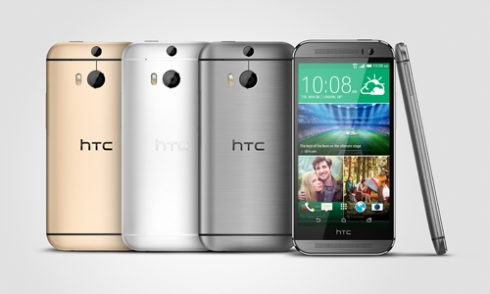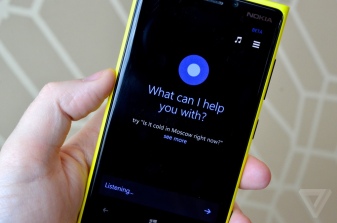Image source: HTC
Today, HTC announced the all-new HTC One (M8) in a press release that, no doubt, was a disappointment for many loyal HTC fans. Last year’s One, the M7, was considered by many one as of the best Android flagships on the market. With its sturdy aluminum chassis, its high-resolution 1080p display, and excellent call quality, the One was an excellent alternative for buyers to consider as an alternative to last year’s Galaxy S4.
The only gripe that many had with this shiny, new device of last year was the camera. At four megapixels, uniquely dubbed “Ultrapixels” by HTC, the resolution and pixel density of the photos was a far cry from the eight and thirteen megapixel shooters found on most high-end flagships of 2013. So, HTC should learn from that mistake with the unveiling of the all-new One (M8), right? Wrong. The camera remains far behind the competition of other smartphones of 2014, and it will, no doubt, be a deal breaker for many users who are looking to decide between the new One (M8) and the Galaxy S5. No one wants to carry around with them a DSLR everyday. A smartphone camera will, obviously, not replace a DSLR, but it it’s 2014. We should be able to take great photos with their smartphones. With devices like the Oppo Find 7 sporting a 50MP shooter and last year’s Nokia Lumia 1020’s 41MP sensor, the measly 4MP shooter is far behind its competition.
With the presence of a 16MP rear camera in the Galaxy S5, anyone who cares about image quality on their smartphone will choose the Galaxy S5 over the M8 if they are in the market for a new Android flagship. There is still something strange about HTC’s electing to keep a 4MP camera on a 2014 flagship that will have to be able to sell units by this time last year in order to stay relevant in the smartphone space. Even though the M8 sports its “Ultrapixel” sensor in the rear, the images are still pixelated, no matter how hard you try to get a good shot. The pixels are slightly bigger than last year’s One, but the iPhone 5s has a much higher resolution than the M8… and the 5s is over six months old! Also, the huge elephant in the room is the fact that the front camera has a higher resolution than the rear shooter! Do not misunderstand me, a 5MP wide-angle camera on the front of a smartphone would be amazing, but there is something inherently wrong with the fact that the rear shooter is a lower resolution than the main camera.
Although HTC has been considered one of the best OEMs in the Android market, their profits have suffered the effects of Samsung stealing all of Android’s thunder. With its superior marketing, Samsung continues to reign as the king of the Android space. Even though HTC uses far superior build quality, such as aluminum instead of Samsung’s polycarbonate “band-aid” finish on the rear of the S5, it is not marketed to as many users as the Samsung devices are. The Samsung Galaxy S4 was marketed as the all-around device for many different users, but how often did you ever see a commercial for the HTC One (M7)? Not many, I’d imagine.
Anyone who considers image quality as an important feature in a smartphone will probably wait for the Galaxy S5 to hit store shelves in April.
Only time will tell how HTC will market this new device. It could be argued that last year’s One (M7) could have easily been the hottest Android device on the market, but Samsung’s marketing power catapulted the S4 to the top. Overall, the M8 is a great phone, but it could be better. Sure, HTC had an already great phone with last year’s One, and expectations were high for them to create a device that would surpass the excellent quality of the M7, but it was a very minor upgrade over last year’s model.
Maybe smartphone manufacturers are running out of ways to innovate. Is the smartphone we carry around in our pockets everyday as powerful, and everything we actually need in such a device? Over the past few years, smartphones have gotten better, their chipsets have gotten more powerful, more RAM has been packed in, screens have gotten bigger, and cameras (for the most part) have gotten better; but no true innovation has really happened. Have we hit the glass ceiling? Is there any more innovation to be done? What say you, ladies and gents? Let me know what your opinion is.

